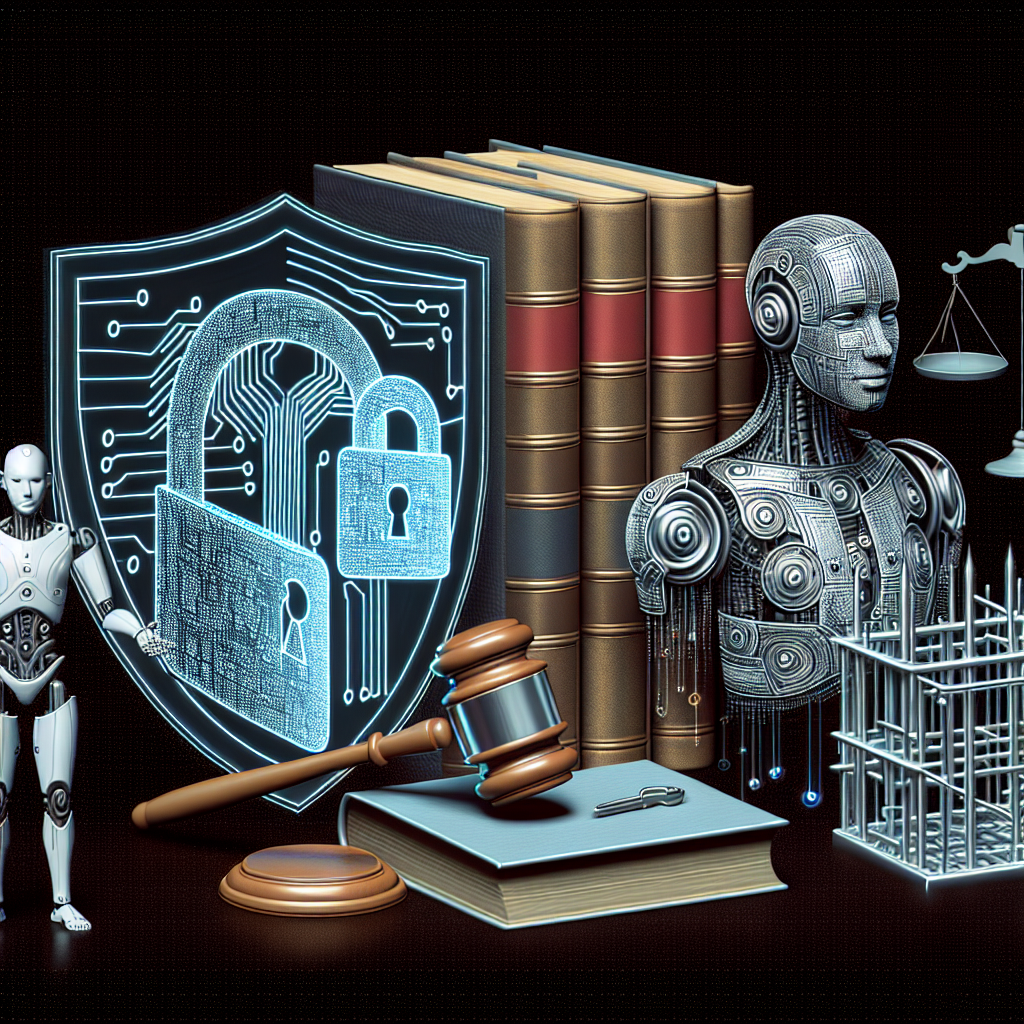In today’s digital age, artificial intelligence (AI) has become an integral part of our daily lives. From voice assistants like Siri and Alexa to personalized recommendations on streaming platforms, AI technologies have significantly improved the way we interact with technology. However, the widespread use of AI also raises concerns about privacy violations and the need to hold AI accountable for any breaches.
As AI continues to evolve and become more sophisticated, the potential for privacy violations also increases. AI systems are capable of collecting, analyzing, and storing vast amounts of personal data, including sensitive information such as health records, financial data, and biometric data. This data is often used to train AI algorithms and improve the performance of AI systems, but it also poses a significant risk to individuals’ privacy.
One of the main challenges in holding AI accountable for privacy violations is the complexity of AI systems. Unlike traditional software programs, AI systems are often opaque and difficult to understand, making it challenging to identify when a privacy violation has occurred and who is responsible for it. Additionally, AI systems can make decisions autonomously based on complex algorithms, making it difficult to trace the source of a privacy breach back to a specific individual or organization.
Another challenge is the lack of clear regulations and legal frameworks governing AI technologies. While some countries have implemented data protection laws such as the General Data Protection Regulation (GDPR) in the European Union, these laws were not specifically designed to address the unique challenges posed by AI. As a result, it can be difficult to determine which laws apply to AI systems and how they should be enforced in cases of privacy violations.
In recent years, there have been several high-profile cases of AI systems being held accountable for privacy violations. For example, in 2018, Facebook was fined £500,000 by the UK Information Commissioner’s Office for its role in the Cambridge Analytica scandal, where personal data from millions of Facebook users was harvested without their consent for political advertising purposes. This case highlighted the need for stronger regulations and enforcement mechanisms to hold AI systems accountable for privacy breaches.
To address these challenges, policymakers and legal experts are exploring new approaches to holding AI accountable for privacy violations. One potential solution is to establish clear guidelines and standards for AI developers and users to follow, such as implementing privacy by design principles and conducting regular privacy impact assessments. By integrating privacy considerations into the design and development of AI systems, organizations can reduce the risk of privacy violations and ensure compliance with data protection laws.
Another approach is to enhance transparency and accountability in AI systems by implementing mechanisms for explainability and auditability. This includes providing users with clear information about how their data is being used and allowing them to access and modify their data as needed. Additionally, organizations should implement safeguards such as encryption and data minimization to protect sensitive information and prevent unauthorized access.
In addition to technical safeguards, legal frameworks and enforcement mechanisms are needed to hold AI accountable for privacy violations. This includes establishing clear liability rules for AI developers and users, as well as implementing effective remedies and sanctions for privacy breaches. By holding individuals and organizations accountable for their actions, policymakers can deter privacy violations and ensure that AI systems are used responsibly and ethically.
In conclusion, the legal challenges of holding AI accountable for privacy violations are complex and multifaceted. As AI technologies continue to evolve and become more prevalent in our daily lives, it is essential to establish clear regulations and enforcement mechanisms to protect individuals’ privacy rights. By implementing privacy by design principles, enhancing transparency and accountability, and establishing liability rules and sanctions, we can hold AI systems accountable for privacy violations and ensure that they are used responsibly and ethically.
FAQs:
Q: Can AI systems be held legally accountable for privacy violations?
A: Yes, AI systems can be held legally accountable for privacy violations, just like any other entity or individual. However, the complexity of AI systems and the lack of clear regulations can make it challenging to identify the responsible party and enforce accountability.
Q: What are some examples of AI systems being held accountable for privacy violations?
A: One example is the Cambridge Analytica scandal, where Facebook was fined for its role in the unauthorized harvesting of personal data for political advertising purposes. This case highlighted the need for stronger regulations and enforcement mechanisms to hold AI systems accountable for privacy breaches.
Q: How can organizations prevent privacy violations in AI systems?
A: Organizations can prevent privacy violations in AI systems by implementing privacy by design principles, enhancing transparency and accountability, and establishing clear liability rules and sanctions for privacy breaches. Additionally, organizations should implement technical safeguards such as encryption and data minimization to protect sensitive information.
Q: What are some key legal challenges in holding AI systems accountable for privacy violations?
A: Some key legal challenges include the complexity of AI systems, the lack of clear regulations and enforcement mechanisms, and the difficulty of tracing the source of a privacy breach back to a specific individual or organization. By addressing these challenges and implementing effective legal frameworks, we can hold AI systems accountable for privacy violations and protect individuals’ privacy rights.

